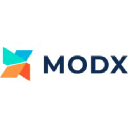
Magento
Magento Overview
Magento is an open-source ecommerce platform that offers flexible, scalable solutions for online businesses of all sizes. Key features include:
- Customizable online stores
- Catalog management
- Mobile commerce
- Multilingual and multi-currency support
- Built-in marketing, SEO, and site management tools
Magento Editions
Magento offers two main editions:
| Edition | Description |
|---|---|
| Magento Open Source | A free, self-hosted ecommerce platform with essential commerce features. |
| Adobe Commerce | A premium, cloud-hosted solution with advanced features, AI-powered intelligence, and enhanced security. |
Key Benefits
- Flexibility and customization options
- Scalability for business growth
- Global expansion capabilities
- Large extensions marketplace
- Active community support
Notable Customers
Some well-known brands using Magento include:- HP Inc.
- Paul Smith
- Helly Hansen
- Coca-Cola

Magento
Magento, now part of Adobe Commerce, is a robust e-commerce platform designed to empower businesses of all sizes to create and manage online stores.
This review will explore Magento's features, capabilities, and suitability for various e-commerce needs.
1. Overview and purpose of the CMS
Magento is primarily an e-commerce platform rather than a traditional CMS, focusing on creating and managing online stores.
It offers a comprehensive suite of tools for product management, order processing, and customer engagement.
Magento caters to businesses of all sizes, from small startups to large enterprises, with its scalable architecture.
2. User interface and ease of use
Magento's admin panel is feature-rich but can be complex for beginners.
The learning curve is steep, requiring some technical knowledge to navigate efficiently.
However, once mastered, it offers powerful controls over every aspect of the e-commerce store.
3. Content creation and editing tools
Magento provides a WYSIWYG editor for creating and editing product descriptions, category pages, and CMS pages.
It supports rich media content, including images, videos, and custom HTML.
The platform allows for bulk product import/export using CSV files, streamlining large-scale content management.
4. Asset management capabilities
Magento includes a built-in media gallery for managing product images and other media assets.
It supports multiple images per product and allows for easy organization and categorization of assets.
The platform also offers image optimization features to improve load times and overall performance.
5. Customization and extensibility options
Magento is highly customizable through its theme system and extensive API.
The Magento Marketplace offers thousands of extensions and themes to enhance functionality.
Developers can create custom modules using PHP to extend the platform's capabilities.
6. SEO features and optimization tools
Magento provides built-in SEO-friendly features, including customizable URLs, meta tags, and sitemaps.
It offers tools for managing 301 redirects and generating XML sitemaps.
The platform supports schema markup to enhance search engine visibility for products and rich snippets.
7. Security measures and user management
Magento implements robust security features, including SSL encryption and PCI compliance for secure transactions.
It offers role-based access control for managing user permissions within the admin panel.
Regular security patches and updates are provided to address vulnerabilities and maintain platform integrity.
8. Performance and scalability
Magento is known for its scalability, capable of handling high-traffic stores with large product catalogs.
It supports caching mechanisms like Varnish and Redis to improve performance.
The platform can be configured for load balancing and clustered environments to handle increased demand.
9. Integration with third-party tools and services
Magento offers extensive API support for integrating with various third-party systems and services.
Popular integrations include payment gateways, shipping providers, and ERP systems.
The platform supports integration with marketing automation tools and CRM systems for enhanced customer management.
10. Pricing and support options
Magento offers two main editions: Magento Open Source (free) and Adobe Commerce (paid enterprise solution).
Pricing for Adobe Commerce is customized based on business needs and can be obtained through consultation.
Support options vary, with community support for Open Source and dedicated support for Adobe Commerce customers.
11. Mobile responsiveness and multi-device support
Magento offers responsive themes out of the box, ensuring a seamless shopping experience across devices.
The platform supports mobile-optimized checkouts to improve conversion rates on smartphones and tablets.
Magento's PWA Studio allows developers to create progressive web applications for enhanced mobile performance.
12. Multilingual capabilities and localization features
Magento provides robust multilingual support, allowing merchants to create and manage stores in multiple languages.
The platform supports multiple currencies and regionalized tax calculations for international selling.
Magento's translation system enables easy localization of content, including product descriptions and checkout processes.
13. Workflow management and collaboration tools
Magento offers role-based permissions to manage user access and streamline workflow processes.
The platform supports staging and preview functionalities for content and design changes before publication.
Integration with version control systems like Git facilitates collaboration among development teams.
14. Version control and content revision history
Magento maintains a revision history for products and CMS pages, allowing administrators to track changes over time.
The platform supports rollback functionality for reverting to previous versions of content when needed.
Developers can utilize Git integration for version control of codebase and theme files.
15. Analytics and reporting functionalities
Magento provides built-in reporting tools for sales, customer behavior, and product performance analysis.
The platform integrates seamlessly with Google Analytics for advanced e-commerce tracking and reporting.
Adobe Commerce offers additional Business Intelligence features for in-depth data analysis and visualization.
16. E-commerce capabilities
As a dedicated e-commerce platform, Magento excels in providing comprehensive online selling features.
The platform supports complex product types, including configurable, bundled, and downloadable products.
Magento offers advanced promotions and pricing rules to create sophisticated marketing campaigns.
17. Compliance with accessibility standards
Magento strives to meet WCAG 2.1 guidelines for accessibility, ensuring inclusive online shopping experiences.
The platform supports keyboard navigation and screen reader compatibility for improved accessibility.
Developers can further enhance accessibility through custom themes and extensions.
18. Documentation and learning resources
Magento provides extensive official documentation through its DevDocs portal.
The Adobe Commerce Learning Portal offers various training courses and certifications.
Numerous third-party tutorials and resources are available through blogs, YouTube channels, and online courses.
19. Community support and ecosystem
Magento boasts a large and active developer community, contributing to forums, events, and open-source projects.
The Magento Community Portal serves as a hub for discussions, knowledge sharing, and support.
Regular Magento events and conferences foster networking and learning opportunities within the ecosystem.
20. Migration tools and processes from other platforms
Magento offers data migration tools to facilitate transitions from earlier versions or other e-commerce platforms.
The platform provides documentation and guides for migrating from popular systems like Shopify or WooCommerce.
Professional migration services are available through Magento partners for complex migration projects.
Conclusion
Magento stands out as a powerful and versatile e-commerce platform, offering robust features and scalability for businesses of all sizes.
While it may have a steeper learning curve, the platform's extensive capabilities, strong community support, and continuous development make it a top choice for serious online retailers.
As part of Adobe Commerce, Magento continues to evolve, promising even more innovative features and integrations for the future of e-commerce.
Website:















































